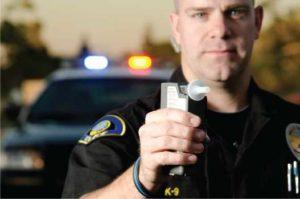
Law enforcement officers use breath tests to verify whether you’re driving under the influence of alcohol. However, these devices can sometimes give erroneous readings. You could find yourself in some serious trouble even if you’re innocent.
Certain factors can raise your blood alcohol content (BAC) well over the legal limit – and give the officers reasonable grounds to arrest you. Read on to learn more about the common reasons for inaccurate breathalyzer results. Once you know them, you can understand your defense options better.
1. Diet and Hygiene
What you eat can set off false positives on your breathalyzer test. When you eat sweet foods high in starch, oral bacteria break down the particles stuck in your teeth. In doing so, they create mouth alcohol that can alter your breath test results.
Also, low-carb foods can increase ketones, further reducing the accuracy of the test. Ketones are produced when your body breaks down stored fat to give you energy. Ketones increase acetone levels in your body, which can alter the outcom of your breathalyzer test.
Additionally, certain types of mouthwash may contain ethanol, a type of alcohol. If a law enforcement officer stops you for a test soon after you’ve used mouthwash, the device may go off with a false-positive result.
2. Pre-Existing Health Conditions
Certain medical conditions can alter the results of a breathalyzer test, even if you’re sober. Such conditions may include the following:
- Acid Reflux. If you suffer from acid reflux, you’re likely to get a false-positive BAC test. Acid reflux can leave traces of acid in your mouth, which a breathalyzer device might
interpret as alcohol content from your lungs. - Diabetes. If you have diabetes, your body will produce high amounts of ketones that can cause higher levels of acetone in your breath. This can cause
inaccurate breathalyzer readings. - Asthma medication. According to the U.S. National Library of Medicine, if you’re asthmatic, you’re likely to use repressive inhaler drugs such as
salmeterol or salbutamol. These drugs can trigger inaccurate DUI results. A breathalyzer could give a false-positive result if you’d used your inhaler shortly before the test.
You should contact your defense lawyer if you get a DUI charge despite your innocence. Your test results may be unreliable if you suffer from any of the conditions above.
3. Poor Calibration
Breathalyzers are delicate devices that need constant recalibration to maintain solid accuracy. Officers also have to follow strict instructions on how to perform the test properly. Without proper testing, the DUI test will give highly inaccurate results.
Without proper testing, the test results are not admissible as evidence if the case goes to court. Therefore, you need to pay attention and note down everything you can recall about your arrest.
Your defense lawyer could use the information you have to subpoena police records about the maintenance and calibration of the device. If anything doesn’t add up – such as a faulty calibrator – you’ll have a right to dispute the results of your DUI test.
4. Chemical Exposure
You could be exposed to certain chemicals in things like gasoline, paint, or varnish, especially if your job involves working closely with such chemicals.
For instance, if you work as a painter or an artist, you could breathe in alcohol-based chemicals. After a long day of work, a law enforcement officer may stop you for a DUI test, and the breathalyzer might give a false-positive result. Claiming occupational exposure can affect your case if you ar going to receive a DUI offense.
If you believe you got a false BAC reading, a reputable defense attorney can help contest your case. Contact Daniels, Long & Pinsel, LLC, for more details on how you can prove your innocence and avoid any unwarranted consequences.